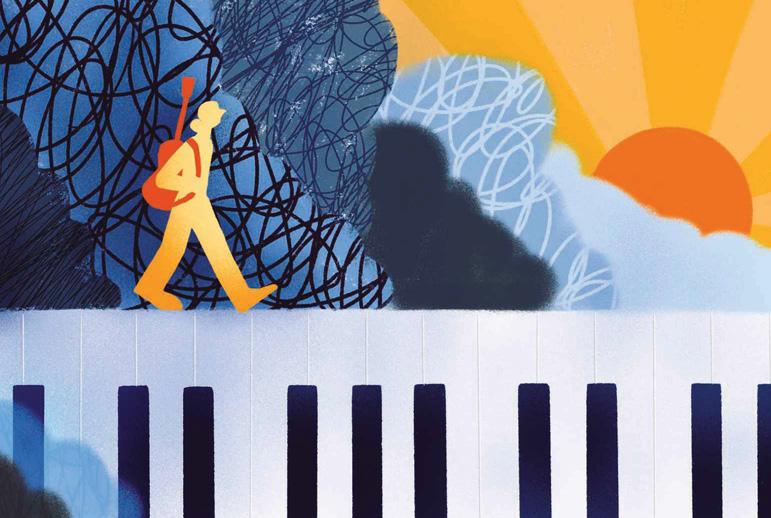But there’s a but, because in science there’s almost always a but. Mindfulness doesn’t work for everyone and for some people, it can lead to adverse effects, such as increased anxiety or depression.
Which makes sense. Being present in the moment feels good when the moment in question is generally positive, or neutral. But if you happen to be going through a bad time, mindfulness can serve to increase awareness of your own emotions and exacerbate the psychological problems that come with them.
"I'm drowning here... And you're describing the water!" yells Jack Nicholson in the 1997 film As Good as it Gets. He was talking about his love life, but the sentiment holds for mindfulness, too.
So, when mindfulness means a mind full of negative emotions, what mental tools should we reach for instead?
Last year, an interesting study compared mindfulness with a different kind of positive mindset: hopefulness.
Researchers at Clemson University and North Carolina State University wanted to know how these different mental states affected people during an unquestionably difficult period.
They spoke to workers in the music industry about their experience of the COVID-19 pandemic. “We deliberately reached out to a group that had been really impacted by the pandemic,” says study author Dr Kristin Scott. “Their work was obliterated for a long time.
“We approached this from the mindset of, what helped these individuals stay the course, stay focused, not totally give up, not fall into depression?”
Scott and her colleagues found that hope improved the music workers' resilience and professional engagement. Mindfulness, in contrast, increased job tensions and stress. It was a stark result that begs another question: what exactly is hope?
It might sound like something passive – a blind faith that things are somehow going to be okay. Scott says that’s not quite right. To be beneficial, hope has to be something active and proactive, strategic and forward-looking.
“It’s quite a goal-oriented mindset,” Scott says. “It’s saying, ‘I don’t know how things are going to go, but I feel that if I do these things and if I stay focused, I thi...


